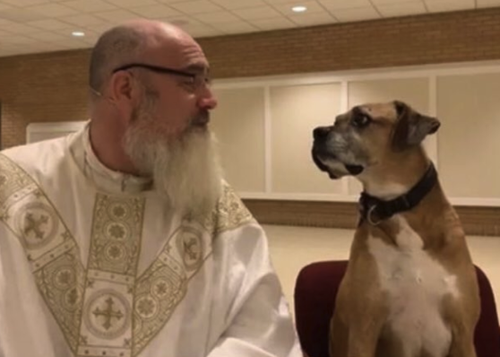As soon as Pope Benedict XVI announced he would surrender St. Peter's throne, messages stopped flowing to the 1.5 million or so readers following his newborn @Pontifex feed at Twitter.
This wasn't surprising since the 85-year-old theologian -- bookish and reserved, by nature -- cited his deteriorating health and declining energy as reasons to let a new pope wrestle with a world "subject to so many rapid changes and shaken by questions of deep relevance for the life of faith."
Twitter certainly is a barometer for change and a forum for questions. While the pope fell silent, the hashtag #askpontifex remained open and the questions and comments continued to build up. Here are a few typical mini-rants in English.
"Latin is a dead language. Latin is the language of the Dead," thundered "MichelArchange," linking to "#pope," "#bishops," "#vatican," "#hypocrits" and "#liars," among others.
"So, if i have sex before a child molester blesses my union, hell awaits me?", asked "BS Radar."
"We all feel abandoned by your abdication," tweeted "Geeky Catholic."
"Did central Italian bank or someone else forced you to abdicate?", asked "Patlatus."
Benedict XVI and his team eventually returned to Twitter, with his first new tweet focusing on spiritual growth during the sobering season that precedes Easter and, this year, a papal election: "During the season of Lent ... we renew our commitment to the path of conversion, making more room for God in our lives."
When @Pontifex opened, on Dec. 12, Vatican officials stressed that while Benedict XVI would not be handling the technology for tweets, the content would come from him. Still, no one addressed a key issue -- whether the elderly pope would be interacting with real messages, in real time, from real Twitter users.
If he did, this blast from cyberspace must have been a shock, noted Elizabeth Scalia, a Catholic blogger known as "The Anchoress." While some might consider the thought absurd, she also wondered if the pope's exposure to online life added a digital last straw to his already heavy burdens.
"When Benedict finally logged on to Twitter he got to see firsthand the sort of raw, unhinged anti-Catholic hatred so active within social media threads," she said, in an online essay. "We who work in new media experience this hatred so regularly it barely registers with us, but for Benedict, or those around him, it must have been a shocking revelation to encounter the vilest expressions of hatred, the intentional voicings of malice and evil hopes, flung squarely at the Holy Father, in real time."
Much of this venom directed at the church, she wrote, "has been inspired (and earned) by the deplorable scandals of the past decades (for which we are due a long season of penance)." But much of the anger also stems from the church's refusal to compromise in the public square, where its ancient traditions serve as a "sign of contradiction" to modernists.
Catholics are bitterly divided, as well, as anyone can see by scanning #askpontifex for a minute or two.
"I wonder if our sensitive pope looked into the abyss of pain, screaming hatred and ignorance so easily accessed by just a few clicks of a keyboard, and felt called to humility and prayer -- a full renunciation of everything in the world, including earthly power and communion with the faithful -- in reparation, penance," Scalia observed.
The pope will soon settle into a monastic life inside the Vatican walls to read, to write and to pray. The status of the Twitter account @Pontifex -- Latin for "bridge builder" -- is unknown.
If Benedict XVI plunges into a monastic life of prayer then he will not "retire" at all, stressed Scalia. No one who has studied his life truly believes he is walking away from the papacy in order to relax in a library or play Mozart on his piano.
"During his entire priesthood, the man has not shaken off duties and burdens, but consented to carry more and more. This is who he is," she said. "Increasingly, I believe Benedict's resignation, rather than releasing himself from a heavy weight, is necessary so he may take on something much more cumbersome."
The evidence, Scalia concluded, is that he will be "doing penance for the church, and for the world -- for those of us who cannot or will not do it, ourselves."


